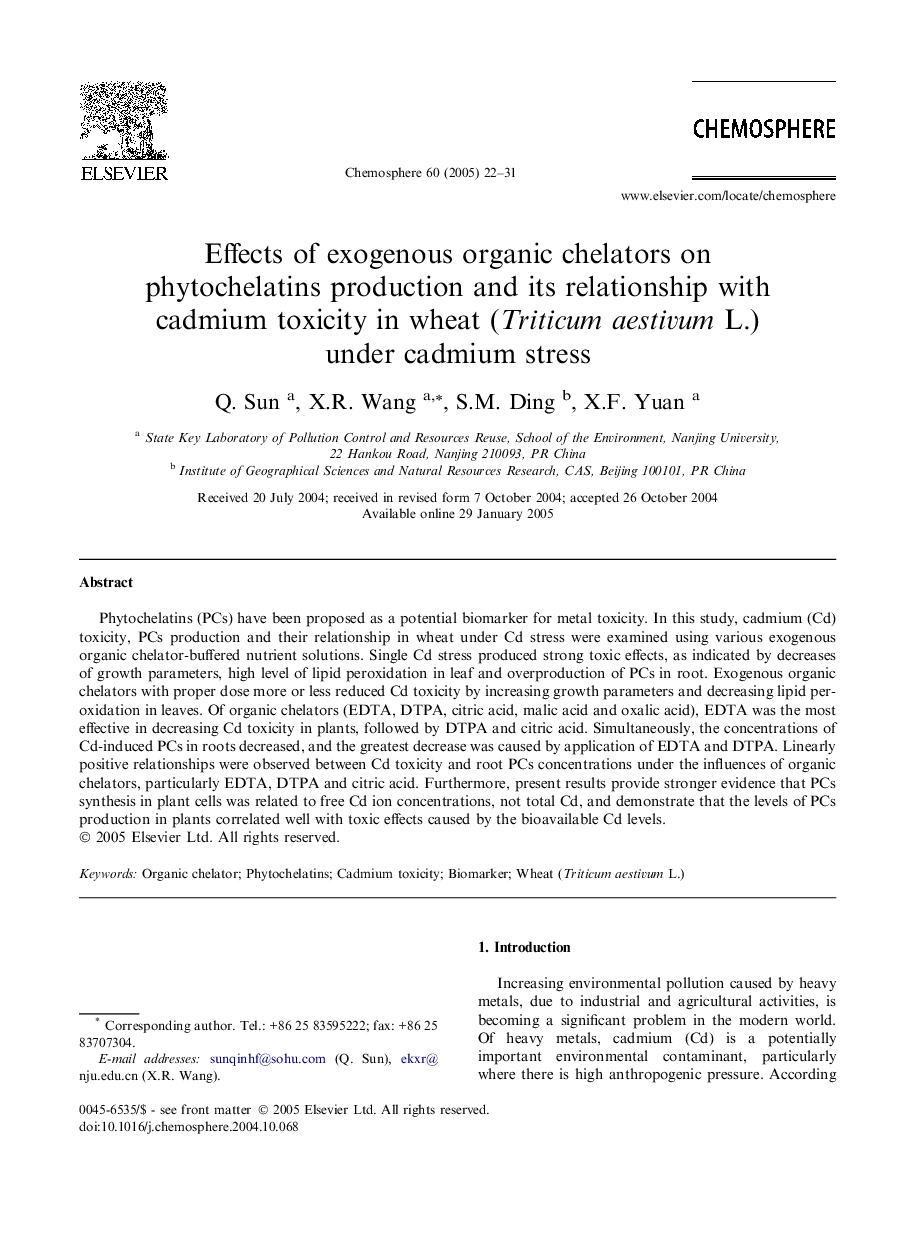| Article ID | Journal | Published Year | Pages | File Type |
|---|---|---|---|---|
| 9451597 | Chemosphere | 2005 | 10 Pages |
Abstract
Phytochelatins (PCs) have been proposed as a potential biomarker for metal toxicity. In this study, cadmium (Cd) toxicity, PCs production and their relationship in wheat under Cd stress were examined using various exogenous organic chelator-buffered nutrient solutions. Single Cd stress produced strong toxic effects, as indicated by decreases of growth parameters, high level of lipid peroxidation in leaf and overproduction of PCs in root. Exogenous organic chelators with proper dose more or less reduced Cd toxicity by increasing growth parameters and decreasing lipid peroxidation in leaves. Of organic chelators (EDTA, DTPA, citric acid, malic acid and oxalic acid), EDTA was the most effective in decreasing Cd toxicity in plants, followed by DTPA and citric acid. Simultaneously, the concentrations of Cd-induced PCs in roots decreased, and the greatest decrease was caused by application of EDTA and DTPA. Linearly positive relationships were observed between Cd toxicity and root PCs concentrations under the influences of organic chelators, particularly EDTA, DTPA and citric acid. Furthermore, present results provide stronger evidence that PCs synthesis in plant cells was related to free Cd ion concentrations, not total Cd, and demonstrate that the levels of PCs production in plants correlated well with toxic effects caused by the bioavailable Cd levels.
Related Topics
Life Sciences
Environmental Science
Environmental Chemistry
Authors
Q. Sun, X.R. Wang, S.M. Ding, X.F. Yuan,
